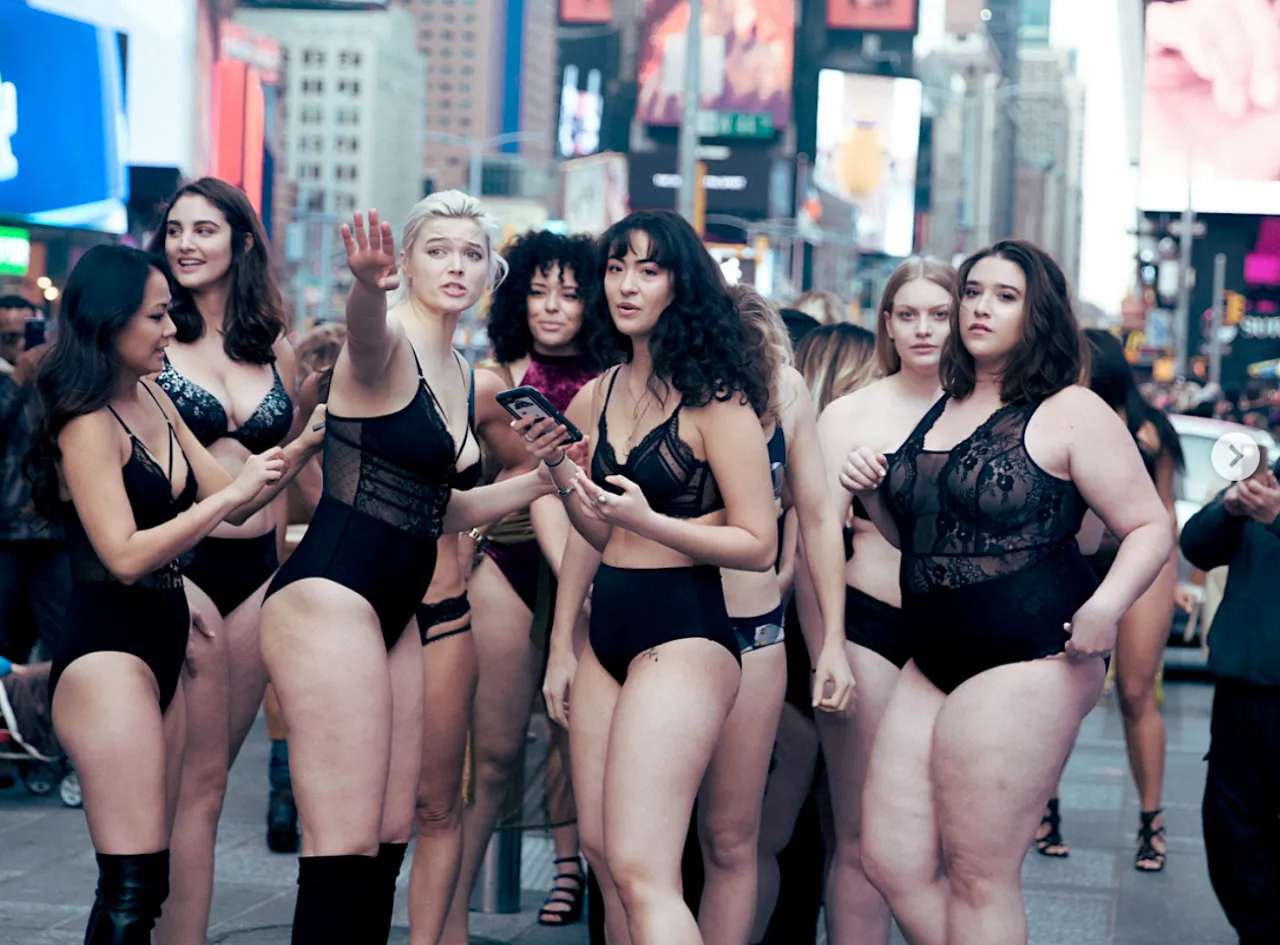
Plus Size Clothing Ranges and Models
The Body Positivity movement seems to have gained momentum over the last few years. It's come a long way since Dove's first Real Women in 2004. Now several high street clothing chains offer plus size clothing ranges. Plus size models like Ashley Graham, Nadia Aboulhosn and Sabina Karlsson are also more visible. And there's a hashtag campaign for practically every variation in looks and size - #Iamsizesexy, #saggyboobsmatter, #Effyourbeautystandards, #Mermaidthighs and finally one that celebrates big noses! #sideprofileselfie. I wish these hashtags had been around when I was growing up. Back then all we had were glossy magazines with super thin white girls in them, which was the opposite to what I looked like! I could have done with seeing some positive role models flaunting their flab and not caring whether or not they had clear skin. I still remember not going swimming for a decade because my back and chest were covered with acne and I was so self conscious about it. I hated my big Punjabi nose and wished my skin was lighter. Self-acceptance has been a slow and long process for me.
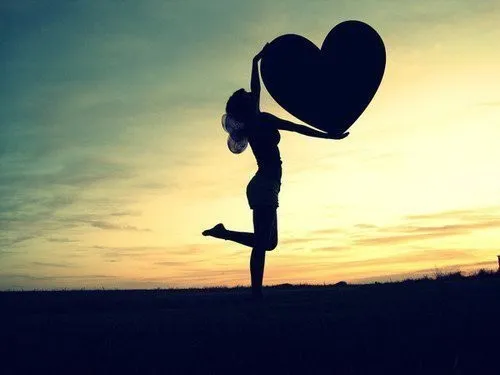
Self Love
That's why in a world of contoured-to-perfection Kardashians and size zero models I find it really refreshing to see images of real people who aren't ashamed of their cellulite or their asymmetrical boobs. Every body deserves to feel comfortable in the skin they are in. Everyone deserves to think they are good enough. Self Love is a phrase that is now popular on social media. For some people this means grooming and pampering yourself but on a deeper level it's about accepting yourself for who you are and being the best you can be.
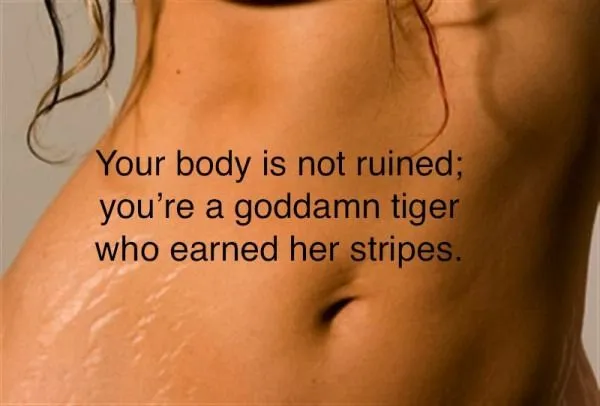
Stretch Marks Are Tiger Stripes
All of the body positive campaigns I've mentioned (and others that I haven't mentioned) encourage self acceptance and being happy in your own skin. They are all positive messages. While these messages weren't around while I was growing up, I've been affected positively by body positive campaigns after having kids. Like most new mothers I was horrified to see what childbirth had done to my body. Stretch marks, lumps and bumps that randomly appeared from nowhere and the (modest) curves that I did have were less curvy and more saggy! I remember looking at myself in a full length mirror for the first time after giving birth. I felt like crying and looked like I'd been taken apart and put back together all wrong. It didn't help that friends who had had babies around the same time as me were back in their pre-pregnancy jeans two weeks later, while mine didn't even go up past my thighs! Seeing photos online of other new mums with stretch marks and saggy baby bellies made me feel more normal and phrases like "stretch marks are tiger stripes" made me feel empowered. Plus I'm lucky to have a husband who has always told me I'm beautiful, regardless of what size I was.
Working on Being the Best Version of Myself
However, regardless of the positive messages from photos on social media and the compliments from my husband, I wasn't comfortable carrying around an extra 2 stone in weight or having to tuck my tummy into my maternity jeans (which I still wore for 6 months after each birth!). A few of my family members have type 2 diabetes so I knew I was more prone to it, particularly as most of my weight seemed to be distributed around my middle (basically around my organs). I wanted to work on being the best version of myself and leading a healthy lifestyle.
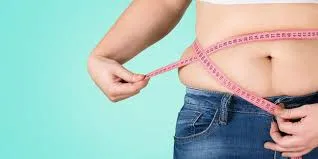
Will People Just Keep Getting Bigger?
But do body positive campaigns promote a healthy lifestyle? Do they give people an excuse to let themselves go? And will people just keep getting bigger if they think "Oh well I'm only a size 18 and this range goes up to 32?". According to the NHS we are in the grip of an obesity epidemic. The latest figures reveal that weight-related hospital admissions have risen by 18% in the past year, with more than a quarter (26%) of British adults now classified as obese. Health issues such as diabetes, heart disease and strokes are linked to being overweight and leading an unhealthy lifestyle. While being overweight doesn't always equal unhealthy, there is no denying that being a size 12 is healthier than being a size 30. After knowing all these facts it seems irresponsible to celebrate "fat pride"(another hashtag on social media!) and to normalise obesity.
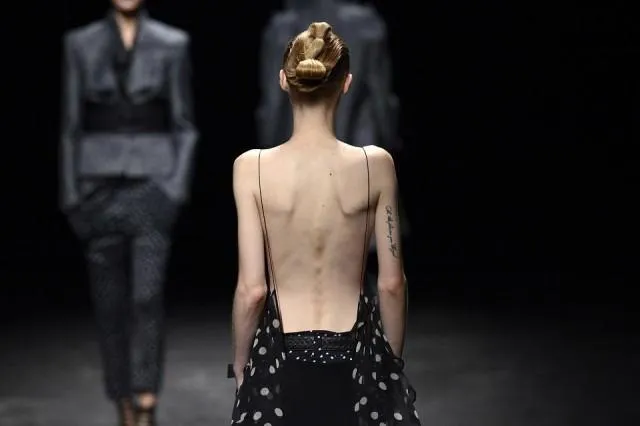
What About Thin People?
In the same way that size zero models have been banned by certain fashion houses, shouldn't obese models be banned too? Last year size 26 model Tess Holiday was criticised by viewers of Loose Women after she appeared on the show. She was accused of promoting obesity. However there were many on social media that came to her defence. I can't imagine that many people caring whether or not a size 6 model had been body shamed for being too skinny.
Apparently a Size 6 Promotes an Unhealthy Body Image But A Size 26 Doesn't
These days it's politically incorrect to call someone fat or suggest that they should go on a diet. But people still feel at liberty to criticise those who are very thin/underweight. Apparently it's still Ok to tell them to "go eat a burger! You're so skinny!". Yes sometimes they have a point, these people may literally need to eat something as they may be starving themselves to look that way. However, I know a few girls who are naturally thin and find it difficult to put on weight regardless of how much they eat. Shouldn't they also be celebrated by the body positivity movement? Or is that promoting an "unhealthy" body image?
What About Moobs and Beer Bellies?
It seems unfair to exclude some body types from the body positive movement. Also this is just women I'm talking about. Let's not even get me started about men and the pressure on them to have a ripped physique. Should they be embracing moobs and beer bellies or is that unhealthy? I think I'll leave that there as that's a whole different article!
A Fine Balance
I think there is a very fine line between the negative and positive impacts of body positive campaigns. It’s definitely good for our mental health to feel proud of our bodies and if seeing campaigns featuring confident people who flaunt their “imperfections” helps us to feel better about ourselves then great. While it’s important to realise that there is no such thing as a “perfect” body, it’s equally important to be honest with ourselves about whether we really are leading a healthy lifestyle.
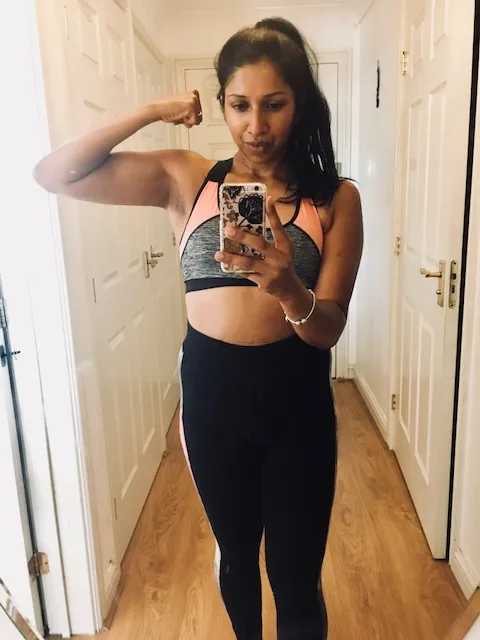
I Still Have Lumps And Bumps But I Own Them!
Despite seeing social media campaigns celebrating larger ladies, I'm glad I didn't just accept being two stone overweight because I would probably be diabetic by now. And I'm glad my family members who were diagnosed with diabetes have started working out and eating healthier. They've since told me that despite claiming to happy with their bodies when they were overweight, they feel way better about themselves now. For me, a year and a half after having my third baby, I can happily say that on some level I have achieved my health goals. I say on some level because I believe we should never stop living a healthy lifestyle and trying to improve ourselves. I still have lumps and bumps, because let's face it I'm a mum of three approaching 40! But now I own those lumps and bumps! I'm proud of what I have achieved through a healthy diet and regular exercise and I'm learning to love the excess baggage that I'm left with. Ultimately for me the message of body positivity is a very important one and it means looking after the body you have, loving yourself whilst on that journey, and just being the best version of yourself, both inside and out.
MummyImperfect x
P.S. I'm still waiting for a small boobs are beautiful campaign!